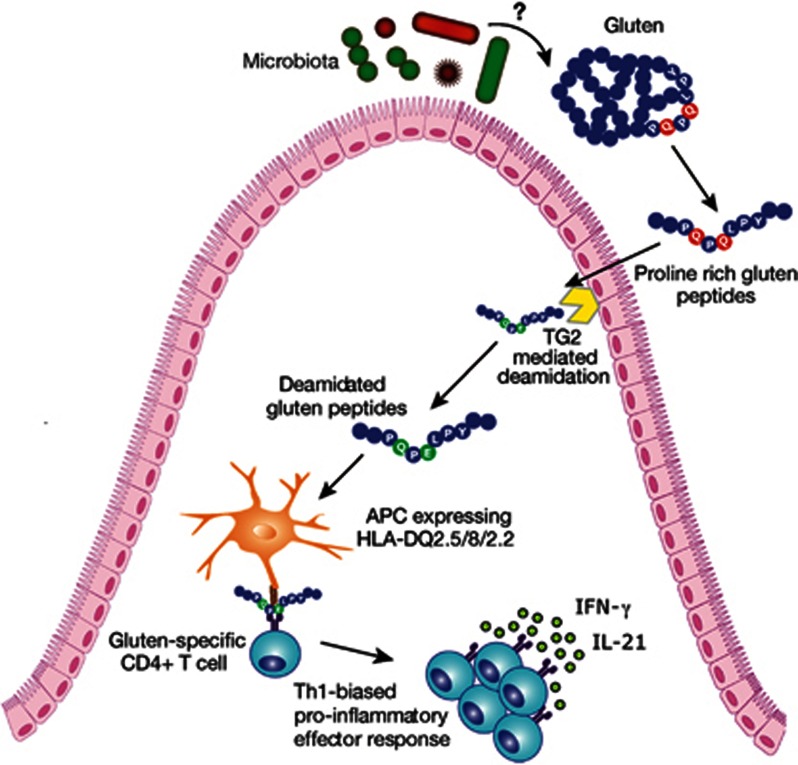Figure 1.
Key features of the CD4+ T-cell response to gluten. Gluten peptides containing T-cell epitopes resist gastrointestinal degradation due to their high proline content. Tissue TG2 catalyses the deamidation of gluten peptides, which can then bind more efficiently to the disease-relevant HLA-DQ molecules on APCs. Activated gluten-specific T cells secrete a variety of pro-inflammatory cytokines such as IFN-γ and IL-21 that contribute to the intestinal lesion (Figure 3). The microbiota may have several effects, including modifying gluten proteolysis and the net production of immunogenic peptides.

